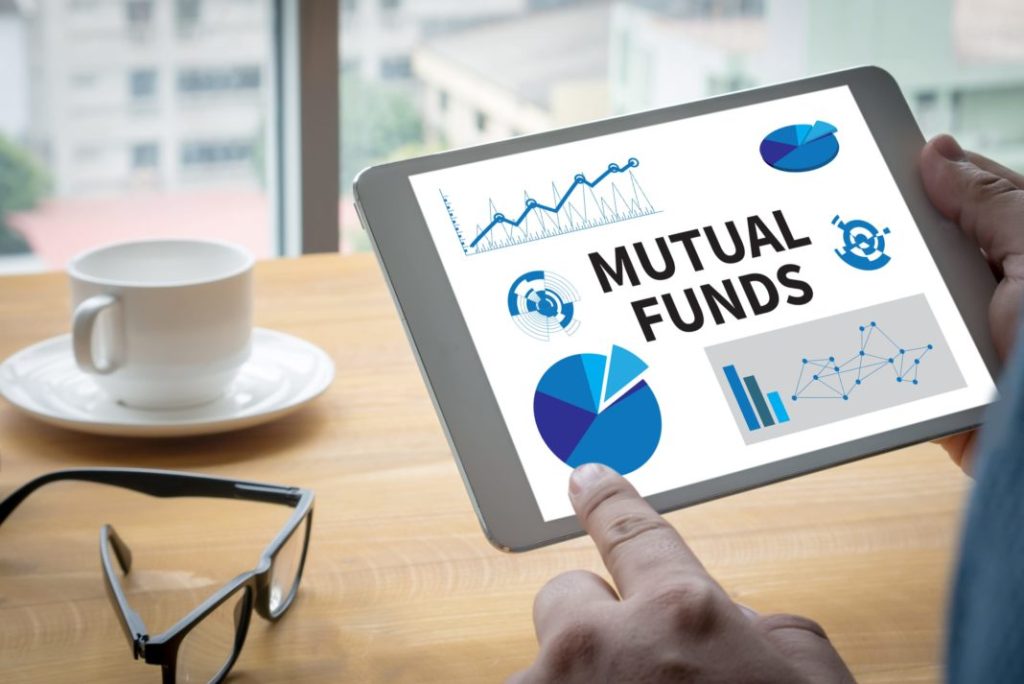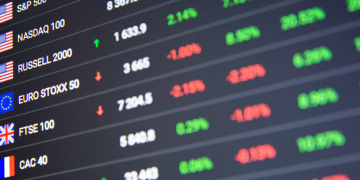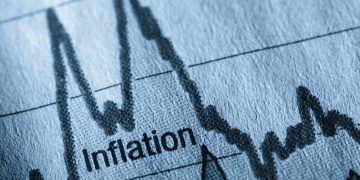Introduction
The investment landscape is constantly evolving, shaped by fluctuating market conditions, economic uncertainties, and shifting investor preferences. Over the past few decades, mutual funds—both active and passive—have become essential vehicles for individual investors seeking to diversify their portfolios and achieve long-term financial goals. Mutual funds pool investors’ money to invest in a broad range of securities, such as stocks, bonds, or a mix of both.
While active management has long been associated with the goal of outperforming the market by selecting securities that will outperform their benchmarks, passive management follows a different philosophy: it aims to replicate the performance of a market index, minimizing costs and aiming for broad market exposure. As market uncertainty and volatility increase, particularly in the wake of global economic shifts, inflation concerns, and geopolitical tensions, investors are questioning whether actively managed funds can outperform passive funds in such environments.
This article delves into the performance of mutual funds—comparing the merits of active versus passive management strategies—against the backdrop of rising market uncertainty. We will explore whether actively managed funds are better positioned to respond to market turbulence or if the simplicity and low cost of passive funds make them a more reliable option during times of market instability.
1. Understanding Active vs. Passive Management in Mutual Funds
To evaluate whether active management can better navigate market uncertainty, we must first understand the core differences between active and passive management in mutual funds.
A. Active Management: Attempting to Outperform the Market
Active management refers to mutual funds where fund managers and their teams attempt to outperform a market index (such as the S&P 500) through selective investment choices. The fund manager uses a variety of research, analysis, and judgment to identify individual securities they believe will generate higher returns than the benchmark.
- Goal: To beat the market by selecting securities that will perform better than the broader market.
- Strategy: Fund managers actively research stocks, bonds, or other assets, based on factors like company fundamentals, industry trends, or market conditions.
- Risk and Reward: Active funds come with higher management fees, as they require more hands-on decision-making. This cost structure may erode returns if the fund manager fails to outperform the benchmark. However, if the manager succeeds, the fund could provide significantly higher returns than a passive fund.
For example, during periods of economic turbulence or market downturns, active managers may be able to adjust their portfolios more quickly, selling underperforming stocks or sectors and reallocating to safer or more profitable assets.
B. Passive Management: Mimicking the Market
In contrast, passive management seeks to replicate the performance of a market index or benchmark by investing in the same securities that make up the index, in the same proportions. The goal is not to outperform the market but to match its performance.
- Goal: To mirror the performance of a specific index, such as the S&P 500 or the Total Bond Market Index.
- Strategy: Passive funds use a buy-and-hold approach, meaning that they are not actively trading securities but instead investing in a diversified basket of assets that mirror the index.
- Risk and Reward: Passive funds generally have lower management fees because they require less active decision-making. However, they are subject to the same risks as the broader market and cannot avoid sectors or companies that are underperforming. The primary advantage of passive funds is cost efficiency, as well as broad exposure to market growth.
During periods of market uncertainty, passive funds may struggle to avoid losses in sectors that underperform, as they are tied to the performance of the entire index, regardless of individual company performance.
2. Performance in the Face of Market Uncertainty
Market uncertainty often arises from various sources: economic shocks, policy changes, geopolitical events, and unforeseen market events. These periods are marked by heightened volatility and unpredictability, making it crucial for investors to choose investment strategies that can provide stability and capital preservation.
A. Active Funds During Volatile Periods
One of the primary arguments in favor of active management is that fund managers can make adjustments to the portfolio during periods of volatility, thereby reducing risk and potentially capitalizing on market inefficiencies.
- Flexibility in Adapting to Market Conditions: Active managers have the flexibility to shift investments across sectors, asset classes, or even move to cash during turbulent periods. For instance, if there is a downturn in the technology sector, an active manager may choose to reduce exposure to tech stocks and reallocate to more defensive sectors, such as utilities or healthcare, which may be less affected by economic downturns.
- Capitalizing on Market Inefficiencies: Active managers often look for opportunities where markets may be mispricing assets. In periods of uncertainty, when the market may overreact to news or fail to properly price risk, active managers can take advantage of these inefficiencies to generate higher returns.
For example, during the COVID-19 pandemic, some active fund managers were able to quickly pivot their portfolios away from sectors hit hardest by lockdowns (e.g., travel and leisure) and into sectors that stood to benefit from the crisis (e.g., technology, healthcare). This adaptability helped some active funds outperform passive funds, which remained tied to the broader market.
B. Passive Funds During Volatile Periods
While passive funds are more rigid in their approach, they also come with certain advantages during periods of market uncertainty:
- Lower Costs: Passive funds are more cost-effective because they do not require active management, making them an appealing option when investors want to minimize fees. Lower costs can help reduce the drag on performance during periods of market volatility, particularly when markets are down.
- Broad Market Exposure: One of the benefits of passive investing is the broad diversification that it provides. By tracking a market index, passive funds hold a wide variety of stocks across different sectors. This diversification can help spread risk, and while the fund will still be exposed to market-wide downturns, it may mitigate some of the risks associated with individual stock performance.
- Consistent Long-Term Performance: Passive funds aim to track the market’s long-term growth trajectory, regardless of short-term volatility. While they may underperform in the short term during periods of market upheaval, passive strategies tend to outperform over the long term due to their low fees and exposure to the overall market growth.
During periods of uncertainty, while individual sectors or stocks may underperform, a broad market index often has enough winners to compensate for the losers, allowing passive funds to maintain relatively stable performance compared to more concentrated active strategies.

3. Evidence from Past Market Cycles
Empirical data on the performance of active versus passive funds during periods of market uncertainty can provide valuable insights.
A. Active Management in Down Markets
Historically, active funds have shown some ability to protect against market downturns, particularly during severe bear markets. For instance:
- During the Global Financial Crisis (2007–2009), some active funds were able to reduce their exposure to financial stocks and reallocate into safer assets, which helped them outperform passive funds tied to broader indices that were heavily weighted in the financial sector.
- Similarly, during the COVID-19 pandemic, certain active managers capitalized on the significant market dislocation by shifting their portfolios to sectors like technology, healthcare, and consumer staples, which saw strong performance during the crisis.
However, the success of active funds in navigating these downturns has often been dependent on the skill of the fund manager. Many actively managed funds failed to beat the market, particularly after accounting for their higher fees. The average active fund in the U.S. has underperformed its benchmark over the long term, making it difficult for most active managers to consistently deliver alpha (returns above the benchmark).
B. Passive Management in Rising Markets
While passive funds may struggle during down markets, they have generally excelled in periods of market recovery:
- During bull markets, passive funds benefit from the broad exposure to the market’s overall growth. As stock prices rise across sectors, passive funds see their portfolio values increase along with the market, without needing to make any active decisions or take on additional risk.
- Over the long term, passive funds have generally provided competitive returns, especially after considering their much lower fees compared to active funds. For instance, the S&P 500 index has historically delivered strong returns, and passive funds that track the S&P 500 have often outperformed the majority of actively managed U.S. equity funds.
During periods of market volatility, passive funds may not be able to mitigate downside risk as effectively as active funds, but their simplicity, broad market exposure, and low cost structure allow them to maintain steady returns over time.
4. Conclusion: Active vs. Passive in Times of Market Uncertainty
Both active and passive mutual funds have their strengths and weaknesses when it comes to navigating market uncertainty.
- Active Funds: Active management offers flexibility, the ability to capitalize on market inefficiencies, and potential protection during downturns. However, these benefits come at a higher cost, and the skill of the fund manager is crucial. Many actively managed funds fail to consistently outperform their benchmarks after accounting for fees.
- Passive Funds: Passive management provides broad market exposure at a low cost, with the goal of matching market returns over the long term. While passive funds may not be able to protect against short-term downturns, they benefit from diversification and long-term market growth. Passive funds tend to outperform over time, especially after accounting for lower fees.
Ultimately, whether active or passive management is the better choice depends on the investor’s preferences, risk tolerance, and investment horizon. Active funds may be more appropriate for those seeking flexibility and potential market outperformance, while passive funds may be ideal for investors looking for a low-cost, long-term investment strategy that aligns with broader market trends.
As market volatility increases, a diversified approach that blends both active and passive strategies could be a wise choice for many investors. This strategy provides the potential for the best of both worlds—seeking alpha through active management while keeping costs low with passive strategies.













































